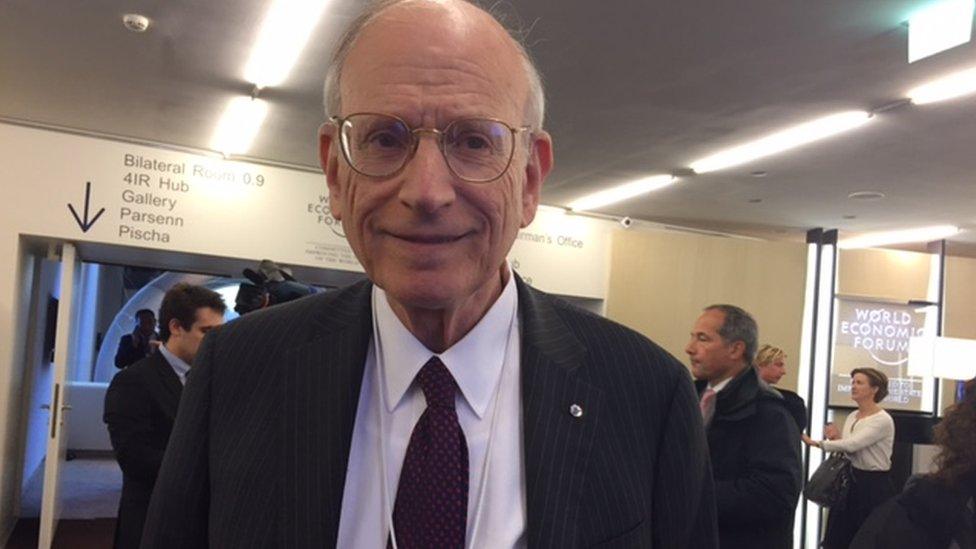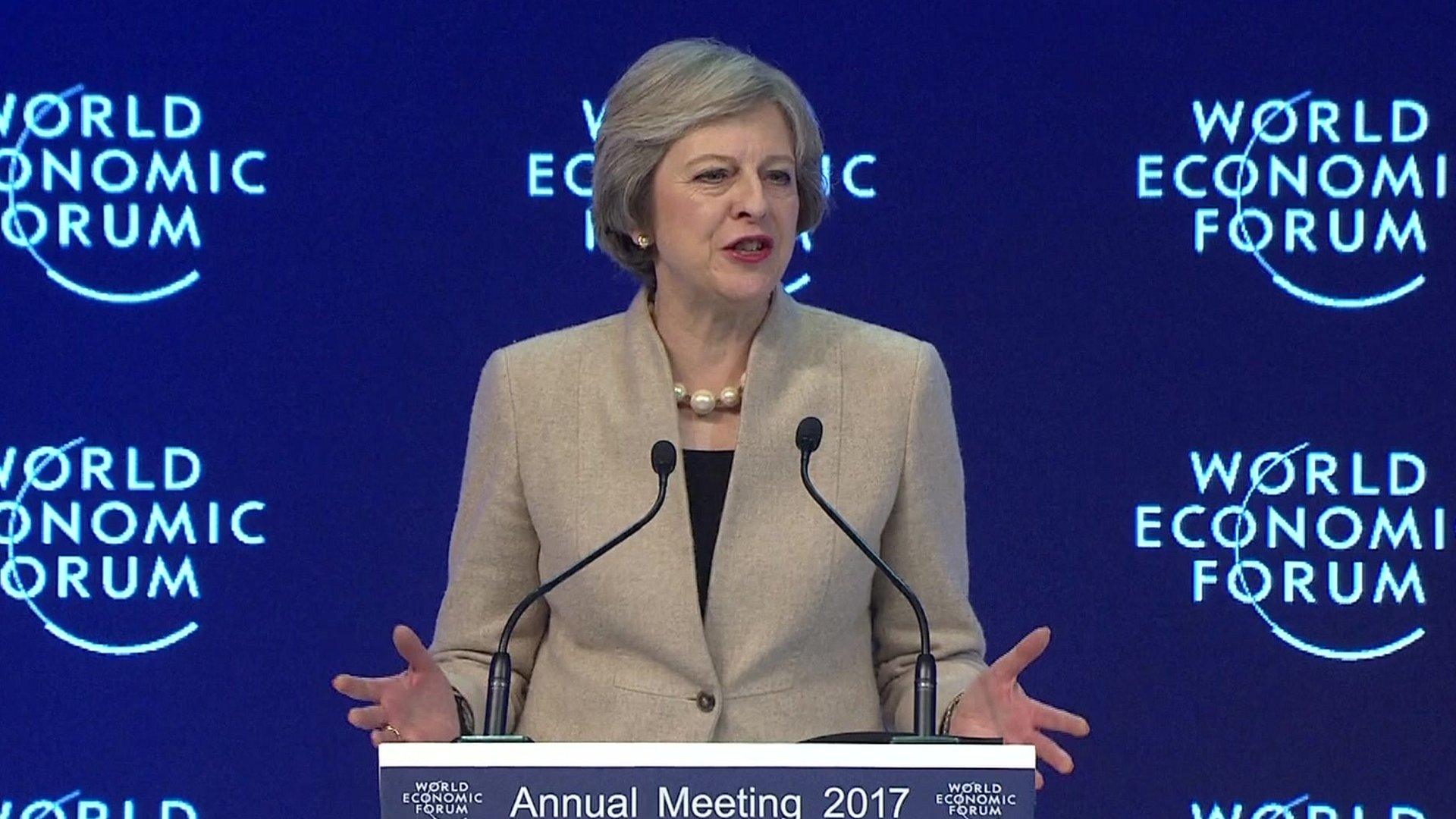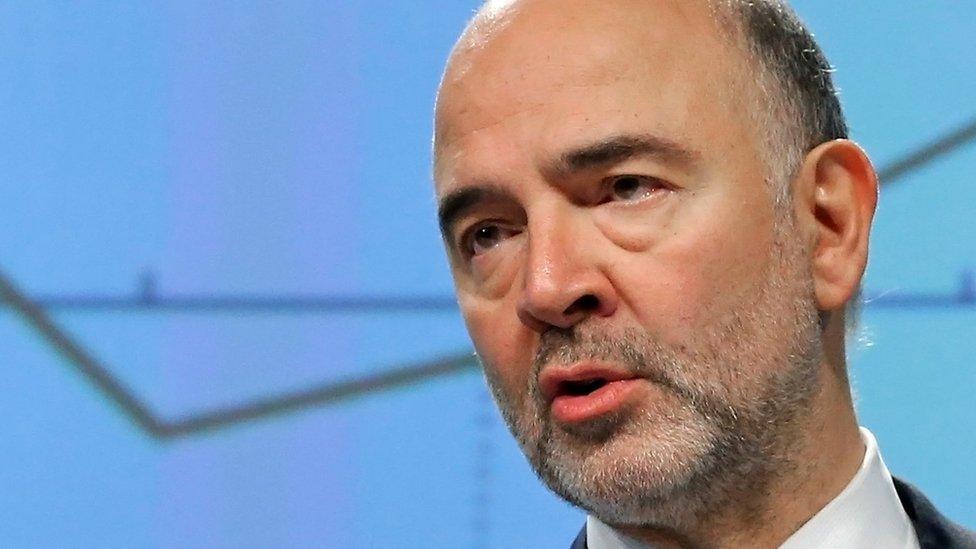Theresa May reaction: What did Davos delegates make of the speech?
- Published
Theresa May: Some companies play by a different set of rules
At the World Economic Forum in Davos, UK Prime Minister Theresa May's speech has been given top billing.
She's in the central hall - the largest space available - to accommodate the hundreds of people desperate to glean any further details on how she's going to manage the UK's EU exit.
And of course hear how exactly she's going to help narrow the inequality, which has been blamed for driving a growing anger at the current political elite.
But, the aides in the conference centre at Davos do not appear to have even heard of her.
"You want the tourism desk?," they ask, pointing to a room at the end of the corridor.
No, I say, Theresa May. "Theresa May?" they ask surprised.
The UK prime minister I explain. "Ahh a global leader?," they ask, and point the way.
May: UK will lead world on free trade
UK will stay 'financial lungs' of Europe
Lagarde warns UK of Brexit pain ahead
Perhaps it's not so surprising. Global leaders are ten a penny here - there's around 50 heads of state and government in Davos - and Donald Trump's fast approaching presidency, rather than Brexit, is the focus of much of the discussions.
Nonetheless by the time Mrs May takes the stage it's standing room only in the huge room.
'A good speech'
And overall her message, that the UK will advocate for growth in free markets and free trade - which she claims will improve life for everyone - appears to have been positively received.
It's not exactly a standing ovation at the end, but the applause is solid, if not prolonged.
Wojciech Kostrzewa, chief executive of Polish media giant ITI Group, declares it "a very good speech".
"She made a clear commitment to free trade and globalisation. It was a very clear statement concerning all those who have been left behind," he said.
But does he think the UK's impending EU exit will lessen its ability to achieve this? Mr Kostrzewa is sanguine: "Europe still needs the UK," he says.

Ambassador Stuart Eizenstat says Theresa May's speech was "positive"
Yufen Shi from Boston, currently on maternity leave, says she agreed with Mrs May's pledge to make sure globalisation would benefit everyone, but she's sceptical it will prove possible.
"It would take a lot of work to formulate a policy to achieve that," she says.
Still, she says the speech was "uplifting".
"She committed to upholding good values and I hope globalisation does benefit everybody," she says.
Similarly, Ambassador Stuart Eizenstat, who heads US law firm Covington's international practice, but previously held a number of senior White House positions including US ambassador to the European Union during the Clinton era says Mrs May's rhetoric was "very positive".
"The notion that the UK is not withdrawing from Europe was a very important message, as was the commitment to free trade.
"We could do with more details, but the basic message was very welcome," he says as I walk with him to his next meeting.
Finally, I happen across David Moran, the British ambassador to Switzerland and Liechtenstein.
"You won't get much from me," he chuckles.
But was it good, I ask? "Oh yes," he nods.
- Published19 January 2017

- Published19 January 2017
- Published19 January 2017
